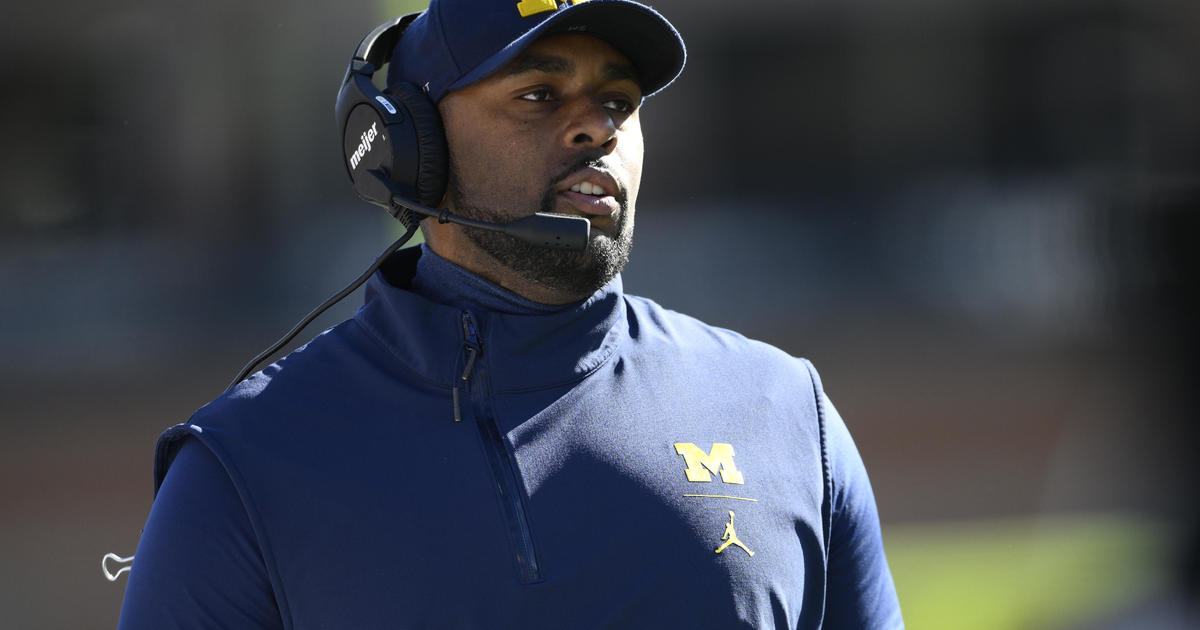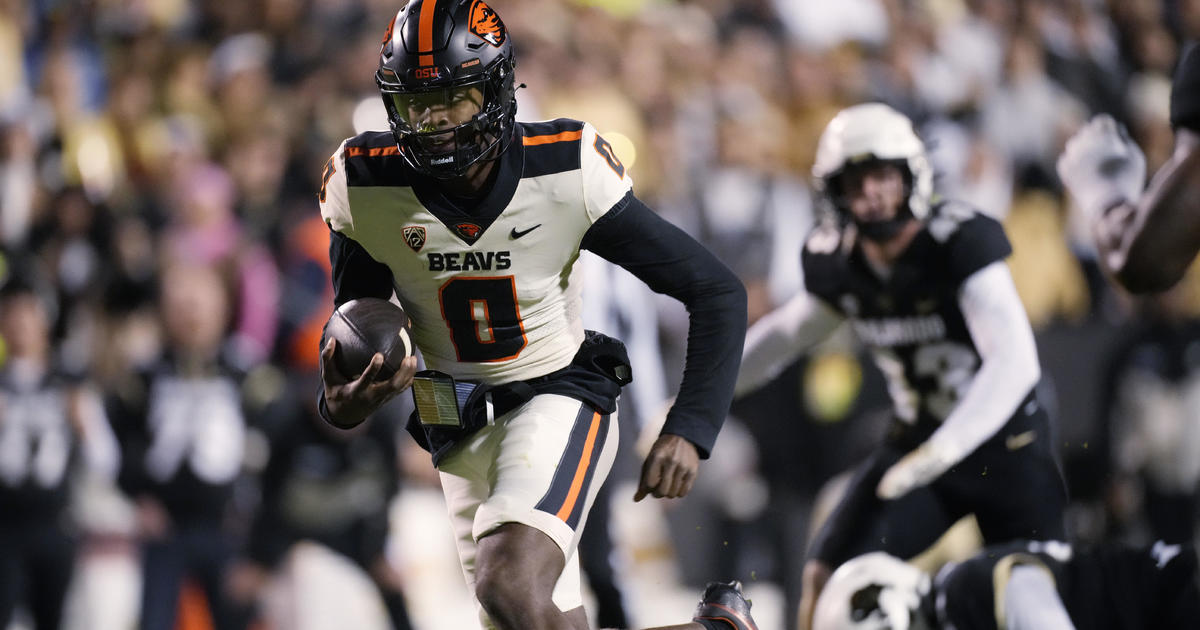How Gustav Nyquist Became A Goal Scorer Again
By: Will Burchfield
@burchie_kid
When discussing NHL players, we tend to use familiar archetypes.
Alex Ovechkin is a goal scorer. Claude Giroux is a playmaker. Andrew Shaw is an agitator.
Gustav Nyquist? He'd rather not label himself.
"I usually never answer that question, to be honest with you. I let other people kind of write whatever they think. I want to be an overall player," Nyquist said on Wednesday morning. "I want to be good on both ends of the ice and doing what makes the team successful."
That's the diplomatic answer, and one to be expected from the well-mannered Swede. But later, as the conversation shifts to Nyquist's dynamic rookie season when he lit the lamp with abandon, the truth comes out.
"In the past I've always thought of myself as more of a passer than a shooting guy. If you look at my younger age and college days, I've always had more assists than goals," said Nyquist.
Indeed, in three seasons at the University of Maine, Nyquist scored 50 goals and 94 assists. And in parts of four seasons with the Grand Rapids Griffins, he posted 53 goals and 90 assists.
But something strange happened when Nyquist was called up to the Red Wings early in the 2013-14 season. He became a goal scorer -- at least, the numbers said he did.
In 57 games, Nyquist tallied 28 goals to 20 assists. He led the league in goals per 60 minutes of five-on-five ice time, outpacing the likes of Max Pacioretty, Tyler Seguin and Phil Kessel. Those guys are goal scorers. Nyquist also led the league in five-on-five shooting percentage (18.42 percent), and anybody familiar with the law of averages -- or Gustav Nyquist -- had to know that wasn't going to last.
It didn't. Nyquist's shooting percentage dipped to 13.8 in the 2014-15 season. Still, he managed 27 goals in 82 games, fueling belief that he could be a steady 30-goal scorer in the NHL. So when his goal output fell to 17 the following season and plummeted to 12 last year, Nyquist looked like a massive disappointment.
Nevermind the fact that his shooting percentage cratered to an impossibly low 7.3 and that he posted a career-high 36 assists in 2016-17 -- Nyquist had shown himself to be a goal scorer before. Where were the goals?
"Of course you want to score goals," he said. "Once you've done it for a couple years you want to keep doing the same thing...but I think a big part of me scoring a lot of goals those years was playing with Henrik (Zetterberg)."
Nyquist continued to play with his fellow Swede in the 2015-16 and 2016-17 seasons, but not as frequently. Without him, things changed: Nyquist passed more, and assists came at the expense of goals. But coach Jeff Blashill reunited the two toward the end of last season and they've been running mates since. For Nyquist, the effect has been dramatic.
With 12 goals through 38 games in 2017-18, second most on the team, the 28-year-old has already matched last season's total. He's on pace for about 25. Playing almost every night with Zetterberg, who's assisted on seven of those 12 goals, has forced Nyquist to ditch his passing instincts for those of a shooter.
"I think if you asked him, he'd call himself more of a passer, for sure. He sees the ice so well," Nyquist said of Detroit's captain. "The opportunities that he's set me up with, I guess on his line it's harder to be a passer than a shooter because he puts you in such good positions to shoot the puck."
In his goal-heavy rookie and sophomore seasons, Nyquist averaged 2.5 shots per game. Over the next two seasons, when the goals dried up, he averaged 2.1 shots per game. Forget that. With an adjusted mentality this year, due mostly to the man dishing him the puck, Nyquist is back up to 2.6 shots per game.
He might resist the label, but he's once again a goal scorer.
"When Gus came into the league I'd say he was more of an assist guy than he was a pure goal guy," said Blashill. "Not that he didn't score in college or in the American League, but he scored at an unreal rate when he first came in the league.
"He can score. If he gets inside that scoring area he's got tricks. He doesn't have the hardest shot, but he's got tricks in the sense that he knows how to position the puck and put it in areas to score."
For the first time since his rookie year, Nyquist has more goals than assists (eight). He already has three two-goal games this season, the latest coming in Sunday's 4-1 win over the Penguins. Around the net, he seems to have rediscovered his confidence.
"I hope so," said Blashill. "I think Gus has played really, really hard hockey and good hockey the whole year. He hasn't always been rewarded with points, but he's stayed with it and now I think he's getting rewarded a little bit more."
Said Nyquist, "Scoring gives you confidence, for sure. You're not squeezing your stick as tight when you have a chance. It's no secret, it's easier to put the puck in the net when you've been doing it for a few games."
Nyquist's shooting percentage has rebounded this season, but not to an unsustainable level: 12.4 percent. If he keeps playing with Zetterberg and keeps putting pucks on net, 25 goals seems like a reasonable target. No, he isn't the archetypal goal scorer -- and he never will be -- but Nyquist is proving those original expectations may not have been so crazy.
He scored his way into a dilemma, and now he's scoring his way out of it.
"I don't really think about it," Nyquist said of his improved goal output. "The most important thing for me is for the team to win here. That's what we're focused on. We have to put a couple wins together here at home before the bye week to kind of get back in the race."



